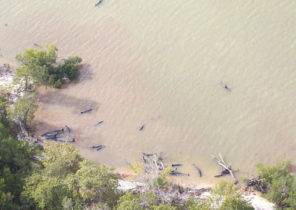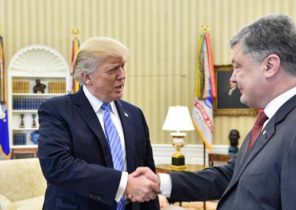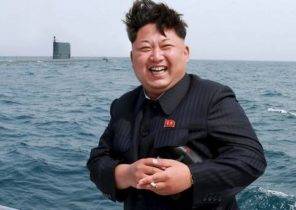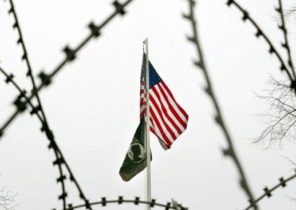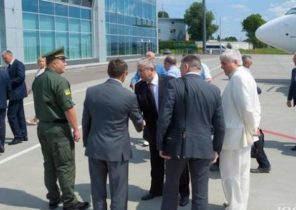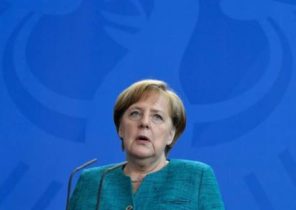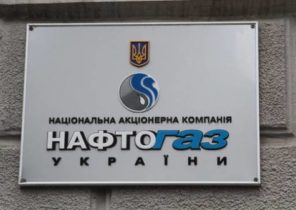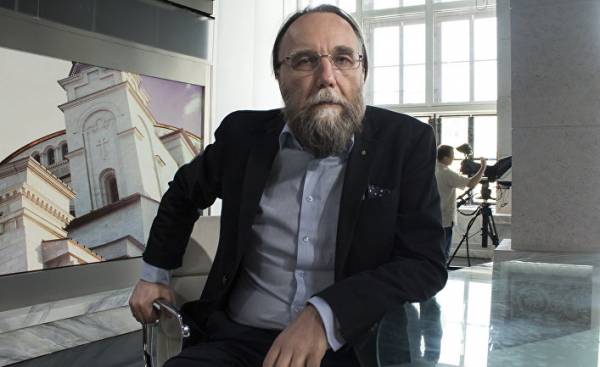
Daily newspaper Blic, using us sources, published the infamous article about Alexander Dugin. It not only distorts the facts but also betrays a complete lack of professionalism. The article even inaccurately given the name of the channel, which now manages Dugin. American propagandists, as in 90-e years, when he wrote of the Serbs, use certain matrix to denigrate anyone, as it seems, upsets their plans. So the turn and Dugin. And our zealous Blic reports anything without checking a single fact. They would anything have read of the numerous works of Dugin, though one Chapter of his books. Creativity Dugin extensively so much so that just pulling phrases from daily and weekly reviews can only lead to one thing — to a distorted idea. When it comes to Dugin, the statements must be placed in the context of his work, he has worked on for decades, and theories that he defends. In addition, a number of other Russian intellectuals (the last in the series — Zakhar Prilepin), Dugin, of course, chose the tactics of provoking the public, and mainly its audience is a very influential people. There are no means, it does not seek to please everyone, wants to be understood and the right and left that morning he was received in Brussels, and in the evening in Tehran. In many public speeches, he ironic or intentionally attack points to start the debate and bring political opponents to clean water. So it is useless to cling to some of his statements. Especially due to the current political order. If the Belgrade journalists contacted Dugin, perhaps he would explain it to them or they would have understood it. Dugin likes the media attention, and he would go to meet them.
Thus, Dugin called a fascist, extremist in every way, a champion of the genocide in Ukraine and secret adviser to Putin. About the relations between the official Kremlin Dugin I have enough information that I could comment on this part of the article. The fact is that at the very beginning of the war Ukrainian Dugin, who advocated a different approach, went with the authorities, and since then, Dugin is not seen on state television. And even when he supported the actions of Vladimir Putin, the question of how great was his influence on foreign policy, remained open. Perhaps it’s a paradox, but in Russia until the onset of the Ukrainian crisis, a significant part of society and a large part of public establishment believed Dugin, an eccentric and an adventurer. What kind of Eurasia, he writes and why we think that America and Europe attack Russia? According to Zakhar Prilepin, only the beginning of the war in Ukraine in the mass consciousness of the nation emerged and strengthened the idea that the theses proposed by Dugin in the 90s and early 2000-ies, not nonsense and reflect the patterns in international relations. The war in Ukraine, confirmed the truthfulness of his predictions, and he himself is likely to cost former influence in the state structure. This is another example of that political theory is one thing and practice something entirely different. Dugin proved himself as consummate a strategist with a vision for long-term prospects, however, were weaker tactician in short-term issues.
But let’s get back from the influence of Dugin to his work. Why is he a fascist? Why are extremist in every way? Being a philosopher, he is the founder of the so-called fourth political theory. Three previous phases of ideological development he associates with communism, fascism and liberalism. All three Dugin is critical, but notes some positive improvements. Modern Western theorists do not like this formulation of the sign of equality between liberalism and fascism and between liberalism and communism, but the justification Dugin convincing. Perhaps that is why few people enter into a philosophical debate with him. In geopolitics, Dugin is one of the first after many years of forgetfulness resurrects old ideas of Trubetskoy, Savitsky, and some other theorists, erecting his concept of neweurasia on their “old” theories. From his point of view, they are to some extent justified, and he argues with the book Huntington’s “Clash of civilizations”. For Dugin the “clash of civilizations” is a sure path to the destruction of Eurasia, and therefore he defends the “cooperation of civilizations” and inter-religious dialogue and understanding. Perhaps the American propagandists and “scribes” from Serbia will also be interesting to know: 20 years ago Dugin warned that it is impossible to prevent the radicalization of Muslims and use them in the struggle with the Orthodox. Dugin noted that it is necessary to look for similarities between the two religions and act preemptively to prevent the bloody war, the benefits of which would take only “post-Christian” West. Dugin seeks the foundations of this cooperation in the past, and many call him a mystic. However, even if it can be in such a reproach, the works of Dugin fully methodologically and theoretically justified, therefore, in their search from strictly adheres to primordialism. To a certain extent, Dugin only relies on the insights of earlier Berdyaev, Danilevsky and Alexander Panarin. Dugin’s views in many respects similar to the position of Kara-Murza. None of these authors in the West have never been called a fanatic. On the contrary, on the basis that laid the Danilevsky, Toynbee and Spengler have erected their own building in the form of anthological works about civilizations. If Dugin is a mystic and a fanatic, and Huntington, go out, too! What is the difference between their views of the world, if both secrete religion as the main criterion for further differentiation of peoples and the development of civilizational blocks. Oh wait, the Huntington didn’t wear a long beard and black turtleneck, and was clean-shaven and tied the tie, but, more importantly, he was not Russian. So he can be neither a mystic, nor a fanatic.
In the end, in political writings, Dugin can be hard to find at least something of what he is accused. Of course, it advocates a clearly anti-Western position, but it’s absolutely legitimate. So what is his sin? It is largely the heir of Zinoviev and Leontiev, whose works in Serbia, apparently, more all wrote Nikola Milosevic. Now, let the West do not understand, the problem is not Dugin. And no one has right to blame him.
Of course, the wind is blowing from the other side, and I assume that Dugin was the focus of us analysts for a different reason. First, many philosophical and geopolitical theses of Dugin are right. In Russia and in some Muslim countries and European “continentalists” intellectual circles it is not considered neither a mystic, nor a fanatic — he is a recognized and popular thinker, who is always happy to see. Secondly, the last four years the popularity of the policy of anti-liberalism, Dugin in Russian society grows dizzying. This man had never taught. When he was out of work at research institutes, he started twice to write and otherwise promote their new works. When the mainstream media have ceased to invite him, he created his own TV. Today “Constantinople” is one of the most popular Internet-pages in Russian with a very interesting structure for the audience. And such vile attacks are intended to discredit Dugin (with him, quite possibly, the person who finances the work of the channel) and taboo. Dugin fanatic, Eurasianism is pure mysticism, and his anti-Western stance is nothing less than fascism.
Knowing Dugin, I believe that such attacks are a little hurt. But that’s his business, and what they write about it in Serbia, the case is ours.
Why do Americans want to declare him a fascist, OK. However, the fact that this happens in Serbia, it is not normal. Not only because of the facts, but, above all, due to the fact that Dugin has done for Serbia. As the war raged in Bosnia when the Croats drove the Serbs from the Krajina, in those unfortunate years when Chernomyrdin traveled to Belgrade together with Ahtisaari, when the Albanians had organized the pogroms in Kosovo, and in many other situations, this man was with us. Because Serbs Dugin has repeatedly engaged in sharp polemics with the representatives of the Russian authorities. He boldly spoke to the Russian audience and talked about the Serbian problems, when in Moscow no one dared or wanted, and often in the most critical moments came to Belgrade. In the end, as an illustrative example of his attitude towards Serbs tell a story. During the sanctions many books Dugin translated and published in Serbian. Some publishers, however, have the consent of the author. After the sanctions and the introduction of new legal norms for the publication of new works, the publishers were required to buy the copyright. Then they teamed up and wrote Dugin’s letter, which explained that, well, we were under sanctions, that there was no money that to make contact with him they could not, and so on. In a few pages. They wrote to tell him that his books have well accepted, have success, and now the publishers have asked him not about translations and publications that come out, and the fee for new books. Dugin had written just four words: “continue, brothers Serbs!”
I don’t know how much attention will attract that that it is published in Blic. Except a narrow circle of people who are engaged in social Sciences and a little large readership, centered around several Internet portals about Alexander Dugin in Serbia is rarely heard. And yet, on the other hand, I would not underestimate this incident. First of all, because Blic is read in two versions: printed and electronic. As far as this edition is trusted is another question. And so the first impression readers about Dugin was not the way it was up to American authors, the article had to respond. Once upon a time Alexander Dugin called himself the “Serb brother”. And my sense is he has proven to be the case. How many actually have such intellectuals in the world over the past quarter century? As they say, whatever they may be, he’s ours now.
